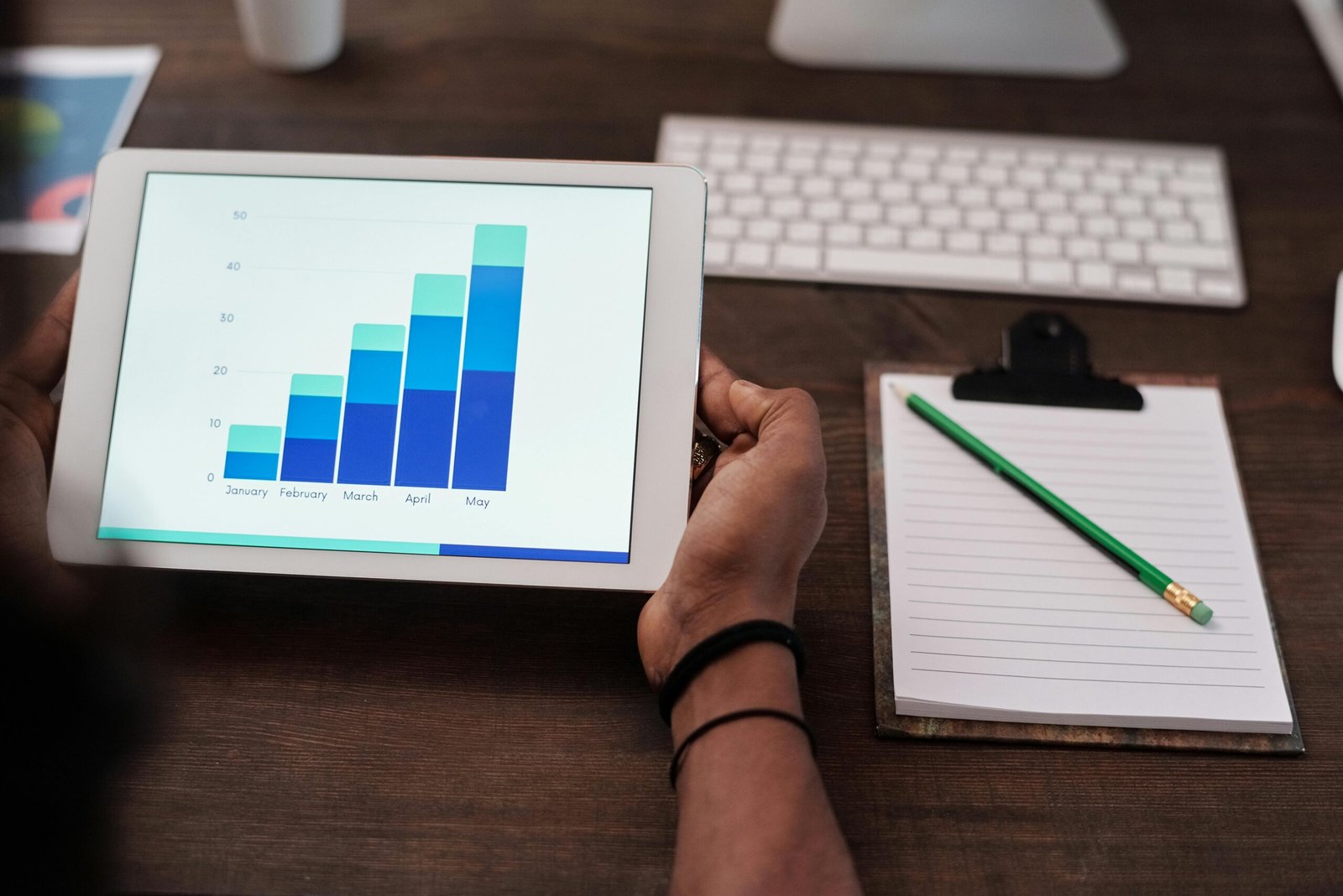In today’s competitive digital landscape, businesses face a critical decision: invest in paid advertising for immediate visibility or focus on Affordable SEO Solutions for sustainable, long-term growth. While paid ads deliver instant results, forward-thinking companies are increasingly recognizing that search engine optimization offers superior return on investment, builds lasting brand authority, and creates sustainable competitive advantages that paid campaigns simply cannot match.
This comprehensive guide explores why savvy business leaders are shifting their marketing budgets toward affordable SEO strategies, the tangible benefits driving this trend, and actionable steps you can implement to maximize your organic search potential. You’ll discover proven strategies, real-world case studies, and expert insights that demonstrate how SEO outperforms paid advertising in building lasting business success.
The Rising Cost Crisis of Paid Advertising
Escalating Competition Drives Up Costs
The digital advertising landscape has become increasingly expensive, with average cost-per-click (CPC) rates rising dramatically across all industries. According to recent data, Google Ads CPC increased by 15% year-over-year, while Facebook advertising costs jumped 89% in competitive sectors.
Small and medium-sized businesses particularly feel this pressure. Where a $1,000 monthly ad spend once generated substantial leads, the same budget now yields diminishing returns as competition intensifies and platform algorithms favor higher bidders.
The Immediate Dependency Problem
Paid advertising creates an immediate dependency that concerns strategic business leaders. The moment you stop funding campaigns, your visibility disappears entirely. This creates a perpetual expense cycle where businesses must continuously invest to maintain their market presence.
Moreover, paid ads face increasing ad-blocking adoption, with over 25% of internet users actively blocking advertisements. This trend significantly reduces paid campaign effectiveness while organic search results remain unaffected.
Why SEO Delivers Superior Long-Term Value
Building Sustainable Digital Assets
Unlike paid advertising, SEO creates lasting digital assets that continue generating value long after initial investment. Well-optimized content ranks organically for months or years, delivering consistent traffic without ongoing costs.
Consider this comparison: a $5,000 monthly Google Ads budget generates traffic only while active, but the same investment in comprehensive SEO work creates content assets that compound over time. After 12 months, SEO investments typically show 300-400% better ROI than equivalent paid advertising spend.
Trust and Credibility Advantages
Research consistently shows that users trust organic search results significantly more than paid advertisements. Studies indicate that 70% of search engine users actively avoid clicking on paid ads, preferring organic results they perceive as more credible and relevant.
This trust translates directly into higher conversion rates. Organic traffic typically converts 14.6% better than paid traffic because users view these results as earned rather than purchased, creating stronger initial trust in your brand.
The Economics of Affordable SEO Solutions
Cost-Effectiveness Analysis
When examining marketing ROI, SEO consistently outperforms paid advertising across multiple metrics. The average SEO campaign costs 61% less than equivalent PPC campaigns while generating 5.66 times more traffic over 12 months.
Here’s a practical breakdown:
- Month 1-3: SEO requires higher initial investment for strategy, content creation, and technical optimization
- Month 4-6: Results begin appearing with gradual traffic increases
- Month 7-12: Exponential growth as content gains authority and rankings improve
- Year 2+: Minimal maintenance costs while traffic continues growing
Scalability Without Proportional Cost Increases
SEO offers unique scalability advantages that paid advertising cannot match. Once your website gains domain authority and establishes ranking patterns, expanding to new keywords and topics requires significantly less investment than launching equivalent paid campaigns.
A well-optimized website can rank for thousands of related keywords without additional per-click costs, while paid campaigns require budget increases for each new keyword target.
Strategic SEO Implementation for Maximum Impact
Content-First Approach
Successful SEO strategies prioritize high-quality, user-focused content that addresses genuine search intent. This approach involves:
Comprehensive Keyword Research: Understanding your audience’s search behavior and identifying opportunities where you can provide superior value compared to existing results.
Topic Clustering: Organizing content around core themes to establish topical authority and improve overall domain relevance.
User Experience Optimization: Ensuring content loads quickly, displays properly across devices, and provides clear navigation paths.
Technical Foundation Excellence
Modern SEO success requires solid technical foundations that support content performance. Critical elements include:
Page Speed Optimization: Websites loading in under 3 seconds see 70% better user engagement and significantly higher search rankings.
Mobile-First Design: With mobile searches comprising over 60% of total queries, mobile optimization directly impacts ranking potential.
Schema Markup Implementation: Structured data helps search engines understand content context, often resulting in enhanced search result features.
Local SEO for Competitive Advantage
Businesses serving local markets find particular value in local SEO strategies. Local search results show strong commercial intent, with 78% of mobile local searches resulting in offline purchases within 24 hours.
Effective local SEO involves optimizing Google Business profiles, building local citations, and creating location-specific content that addresses community needs and interests.
Real-World Success Stories and Case Studies
Small Business Transformation
A family-owned HVAC company in Denver shifted their $3,000 monthly Google Ads budget to comprehensive SEO efforts. Within 18 months, they achieved:
- 340% increase in organic website traffic
- 250% growth in qualified leads
- 85% reduction in customer acquisition costs
- First-page rankings for 47 high-value local keywords
The key was focusing on educational content that addressed common customer questions while optimizing for local search terms with clear commercial intent.
E-commerce Success Story
An online furniture retailer reduced their paid advertising dependency from 80% to 30% of total traffic through strategic SEO implementation. Their approach included:
- Product page optimization for long-tail keywords
- Comprehensive buying guides and comparison content
- User-generated content integration
- Technical SEO improvements that increased site speed by 60%
Results showed 190% organic revenue growth while maintaining overall sales levels with significantly reduced advertising costs.
B2B Service Provider Results
A digital marketing consultancy eliminated their $8,000 monthly LinkedIn and Google advertising spend, redirecting resources toward content marketing and SEO. Their 24-month results included:
- 420% increase in organic leads
- 67% improvement in lead quality scores
- 12 industry authority mentions and backlinks
- Expansion into three new service verticals through organic visibility
Common SEO Myths That Hold Businesses Back
“SEO Takes Too Long to Show Results”
While SEO requires patience compared to paid advertising’s immediate visibility, strategic implementations show measurable improvements within 90 days. Early wins include:
- Improved user engagement metrics
- Enhanced local search visibility
- Better conversion rates from existing traffic
- Increased brand search volume
“SEO is Too Technical for Small Businesses”
Modern SEO tools and platforms have democratized optimization capabilities. Many effective SEO strategies require business knowledge rather than technical expertise:
- Creating valuable content based on customer questions
- Optimizing Google Business listings
- Building relationships for natural link earning
- Improving website user experience based on customer feedback
“Paid Ads Provide Better Targeting”
While paid platforms offer demographic targeting options, SEO provides intent-based targeting that often proves more valuable. Users searching for specific solutions demonstrate higher purchase intent than those shown demographically targeted advertisements.
Additionally, SEO allows targeting of all funnel stages simultaneously, from awareness-level informational queries to high-intent commercial searches.
When Professional SEO Support Makes Sense
Recognizing Resource Limitations
Implementing comprehensive SEO strategies requires consistent time investment and specialized knowledge across multiple disciplines. Many businesses find that internal teams lack the bandwidth or expertise to execute sophisticated SEO campaigns effectively.
Technical audits, competitive analysis, and content strategy development often benefit from professional insight, particularly for businesses in competitive industries or those targeting national markets.
Maximizing Investment Returns
While these strategies can be implemented independently, those with limited resources or expertise may benefit from professional assistance. At Popnest Media, our team of specialists can provide dedicated SEO support tailored to your specific needs. Visit our homepage to schedule a consultation with one of our experts.
Professional SEO services typically accelerate results timelines and help avoid costly mistakes that can impact long-term performance. Experienced practitioners understand algorithm nuances and industry best practices that maximize investment efficiency.
Building Your SEO Strategy: Action Steps
Phase 1: Foundation Assessment (Weeks 1-2)
Begin with comprehensive website analysis to identify immediate improvement opportunities:
- Conduct technical SEO audit using tools like Google Search Console
- Analyze current keyword rankings and traffic patterns
- Review competitor positioning and content gaps
- Assess local SEO optimization status
Phase 2: Content Strategy Development (Weeks 3-4)
Develop content strategies aligned with business objectives and audience needs:
- Create keyword research database with search volume and competition analysis
- Plan content calendar addressing all funnel stages
- Identify link building opportunities within your industry
- Establish measurement criteria and reporting frameworks
Phase 3: Implementation and Optimization (Ongoing)
Execute strategies with consistent monitoring and adjustment:
- Publish high-quality content on regular schedules
- Monitor ranking changes and traffic patterns
- Build industry relationships for natural link acquisition
- Continuously optimize based on performance data
Measuring SEO Success: Key Performance Indicators
Traffic Quality Metrics
Focus on metrics that indicate business impact rather than vanity statistics:
- Organic Click-Through Rates: Higher CTRs indicate compelling titles and descriptions
- Session Duration: Longer sessions suggest content relevance and engagement
- Pages Per Session: Multiple page views indicate strong internal linking and user interest
- Conversion Rates: Ultimate measure of traffic quality and commercial value
Business Impact Measurements
Connect SEO performance to business objectives through:
- Lead generation volume and quality scores
- Customer acquisition cost comparisons between channels
- Revenue attribution from organic search traffic
- Brand awareness metrics including search volume for company terms
Future-Proofing Your SEO Investment
Adapting to Algorithm Changes
Search engines continuously refine their algorithms to better serve user needs. Sustainable SEO strategies focus on user value rather than tactical manipulation:
- Prioritize content quality and user experience
- Build natural authority through genuine expertise demonstration
- Maintain technical excellence with regular audits and updates
- Monitor industry developments and adapt strategies accordingly
Emerging Technologies and Opportunities
Consider future trends that may impact SEO effectiveness:
- Voice search optimization for conversational queries
- Artificial intelligence integration in content creation
- Video content optimization for search visibility
- Local search evolution with augmented reality integration
Conclusion: Making the Strategic Shift
The evidence overwhelmingly supports prioritizing affordable SEO solutions over paid advertising for sustainable business growth. While paid ads deliver immediate visibility, SEO creates lasting competitive advantages that compound over time, delivering superior ROI and building genuine market authority.
Smart businesses recognize that SEO isn’t just about search rankings—it’s about creating valuable digital assets that serve customers while reducing long-term marketing costs. The companies making this strategic shift today will enjoy significant competitive advantages as paid advertising costs continue rising and organic search becomes increasingly valuable.
Ready to transform your digital marketing strategy? Start implementing these SEO strategies immediately, or contact Popnest Media to accelerate your results with professional guidance. The sooner you begin building your organic search presence, the stronger your competitive position becomes.
Don’t let competitors gain SEO advantages while you remain dependent on expensive paid advertising. Take action today to secure your business’s digital future through strategic, affordable SEO implementation.




